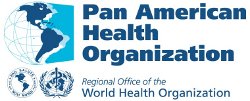2nd Latin American Conference on Research and Innovation for Health
23-25 November 2011, Panama City, Panama
“Priorities for research for health and innovation”
The need to strengthen national research for health systems has been well established. This was the focus of the 1st Latin American Conference on Research and Innovation for Health (which took place in Rio de Janeiro, in April, 2008). For the first time, participants from around 20 Latin American countries gathered to share and learn from each other with the aim of raising the standards and robustness of research for health systems throughout Latin America, improving equity, collaboration, and using research for health & development.
A follow up meeting to the Rio Conference took place in Havana, Cuba in November 2009 (Havana meeting). The success of the Rio Conference was reflected in the enthusiasm and level of participation of Latin American countries at the Havana meeting. Results of the Havana meeting emphasized the need to continue working on the strengthening of research for health systems in the region, including developing human resources for research for health, improving the sustainability and predictability of financial resources for research for health, and defining better and more efficient strategies for knowledge translation and transfer.
The organization of a 2nd Latin American Conference on Research and Innovation for Health is opportune, as suggested by the developments currently taking place at sub-regional and country levels. Paraguay, Uruguay, Ecuador, El Salvador and Guatemala, among others, are developing their research agendas and are investing resources for the optimization of their research systems. We expect that this meeting will provide opportunities for exchange between countries and between sectors involved in research for health, and facilitate the further development and strengthening of systems for research for health in the countries of the region.
2nd Conference key areas
The 2nd Conference will focus on the following areas, which are key towards strengthening systems for research for health and innovation:
- Defining research for health and innovation in national policies and programs
Defined policies and planned actions in research and innovation bring growth and development. Case examples are: Brazil with its increased local production of drugs and vaccines, Cuba that has achieved monoclonal therapy for cancer, and the development of the City of Knowledge in Panama. Others have not yet defined a clear way to achieve that growth. The experiences gained in achieving development and scientific growth could serve to stimulate others to follow similar paths.
Policies, but even more the proper implementation of what is needed for those policies to have a positive impact, are key to successful growth and equity. Innovation should not be thought of as only technological innovation, but also as other types of innovation leading for example to improved health care systems, or access to health.
Priorities could include innovation – how existing strategies, policies, technologies can be applied to achieve better health. Researchers should consider how their research projects will bring results for decision making or innovation.
It is expected that the meeting will focus on how to achieve the linkage between research and innovation, what is already in place that can support a stronger perspective towards innovation, and what needs to be implemented for that change to happen.
- Financing for research for health
Many countries in the region have invested in developing research for health agendas, prioritising topics considered relevant for improving health and for health system development in the country.
One problem affecting the region is scarce funding and, with the exception of a handful of countries, financing for research for health is difficult to get, is not sustained, or is even nonexistent.
The meeting aims to discuss financing of research for health and discuss new and innovative strategies to ensure more sustainable financing for research.
- Strengthening the existent networking
The region has seen the development of networks and networking that are supporting collaboration in research and research for health systems development. The meeting seeks to encourage networking among partners as well as the sharing of networking experiences.
Expected outcomes and outputs
- A report of the meeting capturing the essential discussions and recommendations to strengthen research for health and innovation systems in the region.
- Suggested topics for discussion in Forum 2012.
- Stronger networking in Latin America.
- In the long run, we expect to see stronger policies for research for health and innovation, and better, more transparent and sustainable financing mechanisms.
Participants
Participation will be by invitation, with a balanced representation of all countries in Latin America, plus selected global partners. Participants will include senior officials from ministries of health, ministries of science and technology, or other ministries substantially involved in research for health, senior staff of research institutes, civil society organizations – including professional associations and research councils, research funding agencies, development agencies, and research networks.
Limited financial support will be available for participants to attend the meeting. Funding will be used to balance regional representation of countries and stakeholders.
Follow us in Twitter
Organisers
The COHRED Group (including the Council on Health Research for Development -COHRED and the Global Forum for Health Research) is the main organiser with the support of the Government of Panama through the National Secretariat of Science, Technology and Innovation (SENACYT) and the Ministry of Health, the Ministry of Health of Brazil and the Pan American Health Organization (PAHO-WHO).
This Conference is organised by:

in collaboration with:
![]()

![]()


